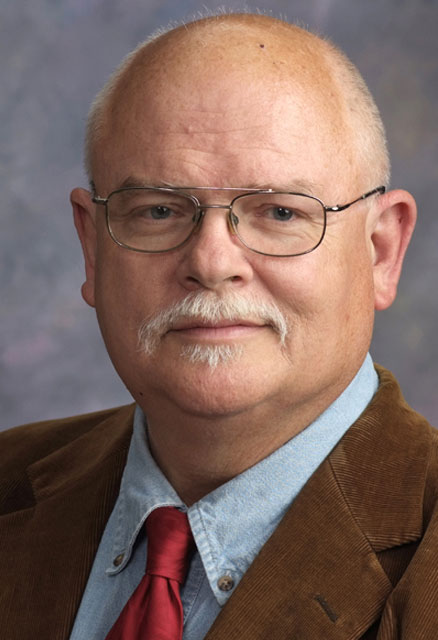
Bill Knight
Book Offers Example,
Hope to Beleaguered Americans

This review originally appeared in the Canton Daily Register on June 25, 2018
Sometimes, “resistance is futile” seems worse than a “Star Trek” line.
Today, the atmosphere seems dark and dank. A “Space Force” is proposed in apparent violation of the 1967 Outer Space Treaty; the U.S. withdraws from the UN Human Rights Council; and President Trump reverses his zero-tolerance mandate separating and jailing thousands of children from parents who are refugees or other undocumented immigrants to imprison them together indefinitely – if they can be reunited.
Trump’s retreat came after widespread criticism, from former First Lady Laura Bush to musician Bruce Springsteen, from six major airlines refusing to transport “detained” kids to Republican leaders in statehouses and Congress. Eleven governors (Republican and Democrat) defied Trump’s call for states’ National Guard troops to go to the southern border, and even Ill. Gov. Rauner and six of seven GOP lawmakers from Illinois gave at least mild objections to the cruel practice.
However, a new book can be a reminder that even against overwhelming power, it’s possible to fight fear and frustrations by working with others.
“Forty Gavels: The Life of Reuben Soderstrom and the Illinois AFL-CIO” (named for the symbols Soderstrom received annually during his tenure as Illinois AFL-CIO president) is more than a biography or a study of one family’s patriarch. It’s a chronicle of a movement and progressive effort.
An accomplished man who lived to be 82, Soderstrom knew hardship as a youngster growing up in Minnesota and moving as a teen to Streator, Ill., his home the rest of his life. He worked at the Streator Independent Times, joined the Typographical Union and became a Linotype “traveler” working throughout the Midwest. Back in Streator, he became more engaged with unions and in 1918 was elected as a progressive Republican to the legislature. After a 1920 loss, he was re-elected as a State Representative in 1922 and served for 14 years, pressing measures to help working people.
In 1930 he took the helm of the Illinois State Federation of Labor as a 42-year-old peacemaker amid divisions among unions, and he united rival factions and competing federations through decades of diligence.
This is also more than a dry compilation of facts and dates. Instead, the encyclopedic effort (a three-volume, 1,054-page package) was produced by Andrew Burt, Robert Soderstrom and Peoria-area writers Dr. Carl W. Soderstrom and reporter Chris Stevens, who produced a readable narrative.
Volume I (1860-1930) covers Soderstrom’s childhood and determination to provide for his family, even as a child, and then his experiences in the General Assembly and in society. Volume II (1930-1949) continues through the Great Depression, New Deal, World War II and the post-war recovery – monumental challenges of economics and politics. Soderstrom rejected authoritarianism, whether fascist, Communist or even organized crime, and he opposed war before Pearl Harbor. Afterward, he helped ensure that Illinois was key to wartime manufacturing. Volume III (1950-1970) traces his rising in the ranks of national importance, helping with the merger of the AFL and CIO, working in political campaigns and with Presidents Truman, Eisenhower, Kennedy and Johnson – and embracing the drive for equality shown by his admiration of and cooperation with Martin Luther King, Jr. and allied interests.
Throughout, the full account of this extraordinary figure reveals the evolution of the labor movement he helped construct, primarily through his “12 pillars,” which remain relevant: child labor, workers’ compensation, the right to strike, credit unions, ending unemployment, old-age pensions, workplace safety, women’s rights, religion, education, civil rights and family.
The exhaustive package (weighing 24.7 pounds) has first-rate production values, too, featuring glossy, heavy-stock paper and fascinating full-color photos that blend archival pictures, news clippings and scrapbook nuggets.
Finally, organized labor was never a top-down pursuit, and the grassroots is responsible to be active. As Soderstrom said, “A working man of any kind who earns his bread in the sweat of his face has not done his full duty to himself and to his fellow workers and to those depending on him until he has joined the labor union of his calling, and he becomes one of those who strive for the uplift of the masses.”
Bill Knight is an award-winning journalist, author, and retired Professor of Journalism at Western Illinois University. You can find his latest articles at his blog, Mayfly Productions.
